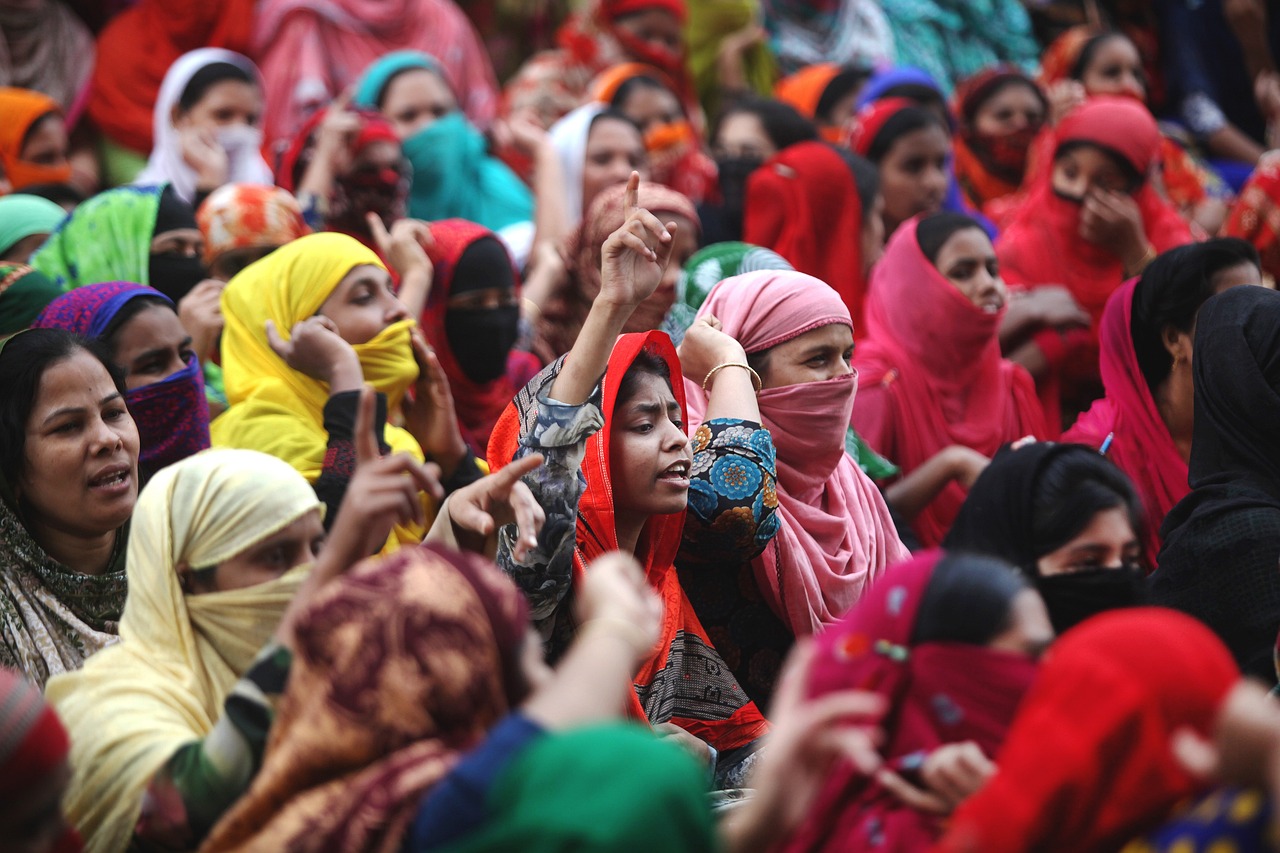Prime Minister Hasina rejects higher wage demands, while 150 factories are shut down
Women employed by the country’s largest garment manufacturers have been protesting in the streets for several days. Concerned about more strikes, manufacturers closed their factories; meanwhile, the prime minister continues to rule with an iron fist.
Dhaka (AsiaNews/Agencies) – The Prime Minister of Bangladesh, Sheikh Hasina, has rejected further wage increases, refusing protesting garment workers’ demand that would almost triple their current pay.
As part of their labour action, workers have clashed with police over the past few days, while some 150 factories shut down "indefinitely" this morning.
Last Tuesday, a government-appointed panel raised the sector’s minimum wage to 12,500 taka (US$ 113) but workers’ rights groups call the new pay level a “poverty wage”.
In Ashulia, manufacturers closed 130 factories today for fear of further strikes. “The manufacturers invoked Section 13/1 of the labour laws," said Sarwar Alam, head of police, speaking to AFP.
The manufacturing hub, located in the northern suburbs of the capital Dhaka, is home to some of the largest factories in Bangladesh, some of which employ up to 15,000 workers in a single, multi-storey plant.
Two days ago, the police used rubber bullets and tear gas against striking workers.
Even in Gazipur, the country's largest industrial hub, at least 20 factories have been closed due to minimum wage protests, which, according to commentators, were the largest in more than a decade.
For her part, Prime Minister Hasina has refused to concede higher wages, claiming that further strikes could cost jobs.
"If they take to the streets to protest at someone's instigation, they will lose their job, lose their work and will have to return to their village," Hasina said two days ago, in a warning addressed to workers.
"If these factories are closed, if production is disrupted, exports are disrupted, where will their jobs be? They have to understand that,” she added.
Meanwhile, security forces have filed a lawsuit against 11,000 unidentified people over an attack at the Tusuka garment factory. Bangladeshi law enforcement often issue charges against unknown persons as a result of political violence.
Protests have reportedly resulted in the deaths of at least three people while more than 70 factories were ransacked last week.
The protests are becoming a political problem for Prime Minister Hasina, leader of the Awami League.
In recent months, she has been repeatedly criticised for running the country with an iron fist, repressing dissent and crushing any form of opposition ahead of upcoming elections, whose date has not yet been set.
For months, the Bangladesh Nationalist Party, the main opposition party, has been calling for the establishment of a neutral, caretaker government that would lead the country to the polls in an impartial and transparent manner.
Bangladesh's 3,500 garment factories account for around 85 per cent of its US$ 55 billion in annual exports, supplying many of the world's top brands, like Levi's, Zara and H&M.
But for the four million, mostly female workers employed in the industry, working conditions are horrible, with current entry-level wages at 8,300 taka a month (US$ 75).
12/01/2007
12/04/2007







.png)










